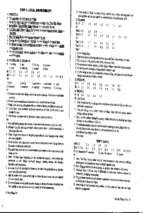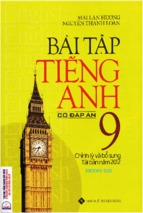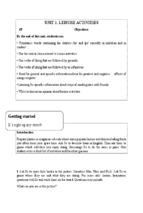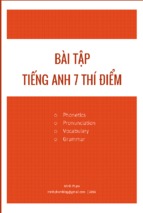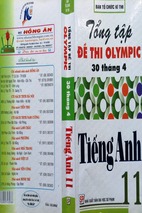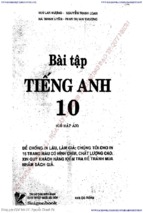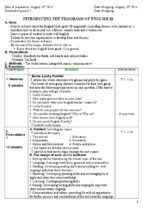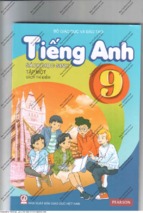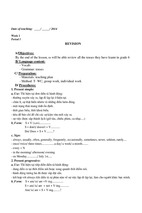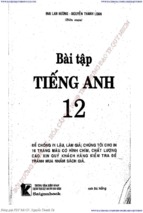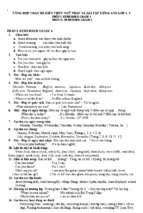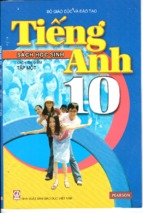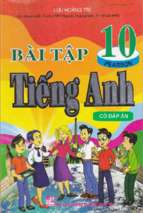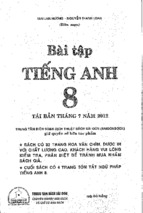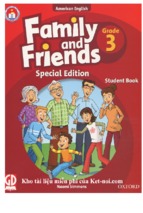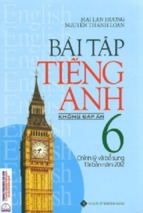DONG NAI EDUCATION & TRAINING DEPARTMENT
TRAN BIEN HIGH SCHOOL
Code: …………………
USING GAMES TO
TEACH ENGLISH IN
HIGH SCHOOLS
Teacher: Tran Thanh Truc
Research area: Methodology in English
Attached:
Model
Software
2011-2012
Movies
Others: CD
Tran Thanh Truc – Using games to teach English in High schools - Tran Bien High School
CONTENTS
I.
INTRODUCTION...............................................................................2
II.
LANGUAGE LEARNING GAMES..................................................2
1.
What is a game?................................................................................2
2.
Why do teachers use games in their teaching?...............................2
3.
Who are games for?..........................................................................2
4.
When to use games?..........................................................................2
5.
How to choose a game?.....................................................................2
III. SOME SUGGESTED WEBSITES.....................................................2
IV.
V.
MY TEACHING EXPERIENCE.......................................................2
1.
Warm-up (5-10 minutes):..................................................................2
2.
While- teaching:.................................................................................2
3.
Post-teaching:....................................................................................2
Conclusion............................................................................................2
References...................................................................................................2
1
Tran Thanh Truc – Using games to teach English in High schools - Tran Bien High School
USING GAMES TO TEACH ENGLISH
IN HIGH SCHOOLS
I.
INTRODUCTION
Nowadays, English is not a strange language in almost every country in the
world. In Vietnam, when asked “What foreign language are you learning?”, ninety
percent of students will definitely answer “It is English”. In fact, English has
become a compulsory subject in nearly all Vietnamese schools. Students have to
learn this subject when they are in the grade three. Not only children but also
adults have to learn English, which is one of the valuable tools for them to work
effectively. Not surprisingly, language centers appear everywhere to meet this
need. However, as Wright et al (1989) put it, “language learning is hard work. One
must make an effort to understand, to repeat accurately, to manipulate newly
understood language and to use the whole range of known language in
conversation or written composition”.
It used to be believed that “all learning should be serious and solemn in nature,
and that if one is having fun and there is hilarity and laughter, then it is not really
learning” (Lee, 1995). Lee asserts that this is a misconception and she adds we can
learn a language and have happy time simultaneously. In order to help learners find
language classes funnier and more interesting, games may be the best solution.
Why do teachers nowadays use games in their teaching? Are games really useful?
Can we choose any games we know for our students? This paper is to answer these
2
Tran Thanh Truc – Using games to teach English in High schools - Tran Bien High School
questions and relate to Vietnamese context. Then, I’ll give some useful websites
that teachers can refer.
II.
LANGUAGE LEARNING GAMES
1. What is a game?
First, we should know what exactly a language game is. According to Toth
(1995), “A game is an activity with rules, a goal and an element of fun. There are
two kinds of games: competitive games, in which players or teams race to be first
to reach the goal, and co-operate games, in which players or teams work together
towards a common goal. The emphasis in the games is on successful
communication rather than on correctness of language”. Obviously, language
games help learners know how to use the language instead of just thinking about
learning the correct forms (Lee,1979)
2. Why do teachers use games in their teaching?
Many experienced scholars have argued that games are not just time-filling
activities but have a great educational value. It is used to be thought that games are
3
Tran Thanh Truc – Using games to teach English in High schools - Tran Bien High School
only used for warm-up activities or when there is some time left at the end of a
lesson. Nevertheless, games can do more than that.
Games have a lot of advantages. “games can lower anxiety, thus making the
acquisition of input more likely” (Richard-Amato, 1988). Uberman (1998) says
that according to Harsen, games are highly motivating and entertaining and
they can give shy students more
opportunity to express their opinions
and
feelings. He also extracted Wierus &
Wierus’s idea when he says that “In
the
easy, relaxed atmosphere which is
created
by using games, students remember
Class 11B6 (2008 – 2009)
things
faster and better.
Wright et al (1989) find that with the use of games, the teacher can create
various contexts in which students have to use the language to communicate,
exchange information and express their own opinions. Lee (1995) lists a lot of
advantages of games when using in the classrooms such as they are “a welcome
break”, “motivating and challenging”, “provide language practice in the various
skills”, etc.
To sum up, games are useful and effective tools for teachers to apply in
language classes. Using games helps to make the lessons more interesting,
enjoyable, and effective.
3. Who are games for?
4
Tran Thanh Truc – Using games to teach English in High schools - Tran Bien High School
As Wright et al (1989) states, “Enjoyment of games is not restricted by age”.
Everyone is able to enjoy games. However, teachers should be careful about
choosing games if they want to make those games meaningful for the learning
process. Different age groups demand different topics, materials, and modes of
games (Uberman, 1998). Uberman (1998) gives an example basing on the one of
Siek-Piskozub that games which require moving around, imitating a model,
competing between groups and the like can attract children’s interest.
Teenage learners maybe hesitate to play games. Many of them are anxious to
learn English to pass examination or to improve their position that they think
games are unnecessary. When teaching these people, we must respect their point of
view and consider whether we should use games or not.
4. When to use games?
'Games are often used as short warm-up activities or when there is some time
left at the end of a lesson. Yet, as Lee observes, a game "should not be regarded as
a marginal activity filling in odd moments when the teacher and class have nothing
better to do" (1979:3). Games ought to be at the heart of teaching foreign
languages. Rixon suggests that games be used at all stages of the lesson, provided
that
they
are
suitable
and
carefully
chosen.'
'Games also lend themselves well to revision exercises helping learners recall
material in a pleasant, entertaining way. All authors agree that even if games
resulted only in noise and entertained students, they are still worth paying attention
5
Tran Thanh Truc – Using games to teach English in High schools - Tran Bien High School
to and implementing in the classroom since they motivate learners, promote
communicative competence, and generate fluency.'
5. How to choose a game?
There are many factors to consider while discussing games, one of which is
appropriacy. Teachers should be
very careful about choosing games if
they want to make them profitable
for
the learning process. If games are to
bring desired results, they must
Class 11B6 (2008-2009)
correspond to either the student's
level, or age, or to the material that is to be introduced or practised. Not all games
are appropriate for all students irrespective of their age (Siek-Piskozub 1994:37).
Different age groups require various topics, materials, and modes of games. For
example, children benefit most from games which require moving around,
imitating a model, competing between groups and the like (Siek-Piskozub
1994:38). Furthermore, structural games that practise or reinforce a certain
grammatical aspect of language have to relate to students' abilities and prior
knowledge. Games become difficult when the task or the topic is unsuitable or
outside the student's experience.
Tyson (2000) gives a list of advice for teacher to consider before selecting a
game.
6
Tran Thanh Truc – Using games to teach English in High schools - Tran Bien High School
• A game must be more than just fun.
•
A
game
should
involve
“friendly” competition.
•
A game should keep all of
Class 11B5 (2008-2009)
the
students
involved
and
interested.
• A game should encourage students to focus on the use of language rather
than on the language itself.
• A game should give students a chance to learn practice or review specific
language materials
III.
SOME SUGGESTED WEBSITES
In order to apply games in teaching language, teachers can use a variety of
games. I think the following websites are very useful for teachers to consult. In
these websites, teachers have a chance to find different games that are suitable for
their students’ levels: from beginning to advanced.
• www.gamequarium.com/languagearts.htm
• www.languagegames.org/la/english.asp
• www.transparent.com/language-resources/games
• www.teachingenglishgames.com
7
Tran Thanh Truc – Using games to teach English in High schools - Tran Bien High School
• www.esl-galaxy.com/board.htm
• www.btinternet.com/~ted.power/games.htm
For more visual practice of using games, teachers can visit these two websites.
They provide lively and interesting videos of applying language games which may
be helpful for teaching.
• http://www.youtube.com/watch?v=EtwDhKso2No
• http://www.youtube.com/watch?v=FaPZCV9KSH8&feature=related
• http://www.youtube.com/watch?v=wam5PscoSjU&feature=related
IV.
MY TEACHING EXPERIENCE
During my teaching, I have applied some games that made my students feel like
participating in my lessons. Here are some examples.
1. Warm-up (5-10 minutes):
For my warm-up activity, I chose the games that short, relating to the new
lesson and competitive. For example,
in
unit 12 (The Asian Games), part B
(speaking), before going into the
tasks, I asked my students to play a
competitive game. Its name is “Stop
the
Teacher instructs students before the game
bus”. Here is the rule:
Put students into groups (maybe 4 groups)
8
Tran Thanh Truc – Using games to teach English in High schools - Tran Bien High School
Give each group some pieces of paper.
Tell students “I will give you a letter. Then you have to find the name of the
Asian country and the name of the sport that begin with that letter. Write
down those names on the paper. Next run to the board to stick on the board.
While you are running, shout “Stop the bus”. After some letters, the group
that has the most correct names will be the winner. Are you ready?”
Thanks to this game, I could lead in the new lesson very easily and my students
also felt very excited about the new lesson.
2. While- teaching:
While you are teaching, you also insert
some games so that your students won’t
feel the lesson is as dry as dust. For
example, in unit 6 (Competitions), part A
(Reading), instead of asking students to
answer questions individually or in pairs, teachers can ask them to play the game
“Lucky numbers”. Here is the rule:
Divide the students into two groups.
“There are 9 numbers on the wallchart. Among those numbers are lucky
numbers and unlucky ones. If you choose the number that has the question,
you will have to answer to get 10 points. There are some surprises in some
numbers”
Number 1: what would be awarded to the winner? (question 6)
9
Tran Thanh Truc – Using games to teach English in High schools - Tran Bien High School
Number 2: Who took part in the annual final English competition last
Sunday? (Question 1)
Number 3: double points
Number 4: What was the aim of the competition? (question 2)
Number 5: Who sponsored the competition? (Question 3)
Number 6: divided in half
Number 7: double points
Number 8: What did each group of students have to do during the contest?
(question 4)
Number 9: What did the judges have to do to choose the winner of the
competition? (question 5)
Thanks to this game, my students found the task more interesting.
3. Post-teaching:
For this part, there are a lot of games for the students. For example, the game
“Slap the board”. This is a competitive game requiring students’ memory and
quickness. I used this game in Unit 1 (Friendship) – part A (Reading) to check
students’ memory of new words. Here is the rule:
Divide the students into two groups. Choose 10 students in each group.
Ask students to stand in two lines.
Teacher writes a number of new words that they have learned on the board
in English.
Teacher reads Vietnamese meaning of one of those words loudly.
First students of two lines have to find out the equivalent English quickly
and run to the board to slap on
Which student is faster will
point.
Go on until the last students.
it
get
1
Class 11B6 (2008 – 2009)
10
Tran Thanh Truc – Using games to teach English in High schools - Tran Bien High School
My students liked this game very much. It helped them feel fun after a hard
lesson.
V.
Conclusion
In summary, the role of games in teaching languages cannot be denied. When
using games to teach languages, teachers are able to bring relaxation and fun to
students. Students can learn and remember words more easily. Moreover, games
bring real world context into the classrooms. Therefore, students are able to
communicate effectively. Games should be an integral part of the lesson, helping
students practice language and enjoy themselves at the same time. Of course, not
all the lessons need games. They should be used appropriately and flexibly in order
that students are always eager for games.
11
Tran Thanh Truc – Using games to teach English in High schools - Tran Bien High School
References
Lee, S.K. (1995). Creative games for the language class. “Forum”, 33(1), pg.
35
Lee, W.R.(1979). Language teaching games and contests. Oxford: Oxford
University Press
Nguyen, T.T.H. & Khuat, T.T.N. (2003). The effectiveness of learning
vocabulary through games. Asian EFL Journal, 5(4)
Richard-Amato, P.A.(1988). Making it happen: Interaction in the Second
language classrooms: From theory to practice. New York: Longman
Toth, M. (1995). Children’s games. Oxford: Heinemann Publishers
Tyson, R.E. (2000). “Serious” fun: Using games jokes and stories in the
language classrooms. Class handout
Uberman, A. (1998). The use of games: For vocabulary presentation and
Revision. “Forum”, 36(1), pg.20
Wright, A., Betteride, D. & Buckby, M. (1989). Games for language learning.
Cambridge: Cambridge University Press
12
- Xem thêm -

